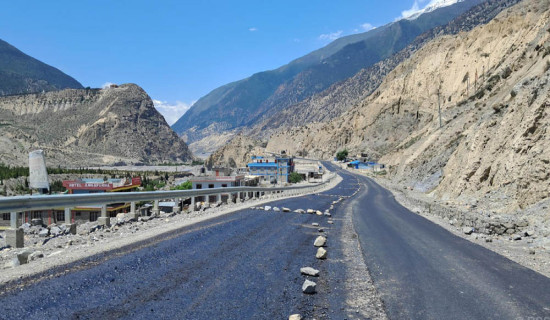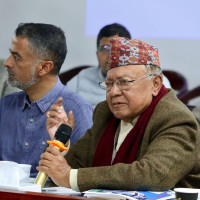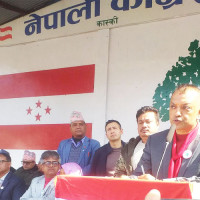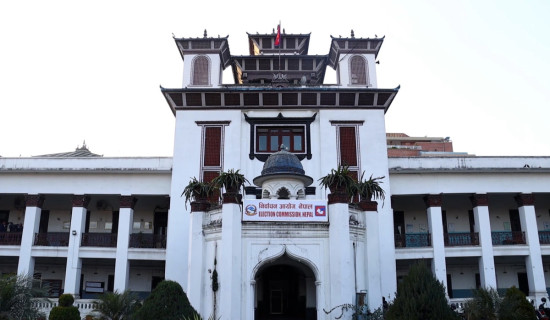- Sunday, 8 February 2026
Ensuring The Rights Of Gender Minorities
The classification of people as female, male, homosexual, third-gender, intersexual, or bisexual in human civilisation is based on biological distinctions. As evidenced in numerous traditions like Hinduism, where Shivaji is regarded as "Ardhanarishwar" and Shikhandi is known to have a separate sexual identity, religious and mythological beliefs also support this identification. Human sexual orientation and gender identity are determined by natural and biological processes. Since 1890, comprehensive publications have been produced on the topic of the natural and biological roots of human sexuality and gender identity. Research on these topics goes back to the 17th century.
It has been proven by historical accounts and religious data that people in society have had sexual orientations distinct from those of women or men. These people are classified as belonging to the third gender or being homosexual based on the development of their physical and mental traits. While there are no precise statistics on the number of people in Nepal who identify themselves as having a different gender, it has been believed to be between 500,000 and 10 per cent of the population. Global health organisations have affirmed the recognition of gender identity. But according to the present census, there are only 2,900 people identified as a different sex.
There have been allegations of discrimination in Nepal against the LGBTIQA+ population. People struggle with mental health issues, are unable to publicly socialise, and are unable to reveal their gender identity. In comparison to other citizens, they are excluded from legal rights, social benefits, and the opportunity to actively participate in policymaking. The dearth of action by the government in granting them political and social rights is worrisome. Political organisations do not adequately represent the opinions of community people.
Legal rights
Universal and national declarations prohibit gender-based discrimination. The Universal Declaration of Human Rights 1948 specifically mentioned that gender-based discrimination is prohibited. Furthermore, the Jakarta Principle 2006 has reinforced the idea that discriminatory practices should be resolved through constructive discussions with nations worldwide. The Interim Constitution of Nepal 2063 also prohibited discrimination based on gender under Article 13 and the election of 335 members among 601 members of the Constituent Assembly through proportional representation, under Article 63. The Constitution of Nepal has recognised the importance of equality and has made it a fundamental right. The Preamble of the Constitution aims to eradicate discrimination based on class, ethnicity, region, language, religion, and gender to establish a just and prosperous society. Article 12 grants individuals who obtain citizenship through the Constitution the right to receive a certificate of citizenship by identifying themselves as "other" besides male or female. This provision has encouraged members of the LGBTIQA+ community to reveal their true identity and integrate into society. Moreover, Article 18 prohibits discrimination against citizens based on their gender and sex. The Right to Social Justice (Article 42) also ensures that sexual minorities have the right to participate in State bodies based on inclusivity. Recognising these rights has further established the universal principle that every human being, regardless of their biological or natural origin, deserves respect.
Political rights
The Election Commission reports that Nepal presently has 104 registered political parties. Although the political parties have been mentioning sexual and gender minorities in their election manifesto and constitution for a long time, there is no obligation for them to participate in the Central Committee. It has been discovered that the concerns of these marginalised communities are only being used as empty promises in political parties' policies, rules, protocols, and election manifestos. The Janata Samajwadi Party has expressed its support for a fully proportional election system. Moreover, the party's manifesto for 2077 BS has assured that adequate measures will be taken to provide reservations for sexual and gender minorities. Likewise, the manifesto created by the former Naya Shakti Party, headed by Dr. Baburam Bhattarai for the 2074 local-level elections, indicated that a distinct group programme would be implemented to support the economic and social growth of the gender and sexual minority community under point number 4.6.10 (under Proportionate and Inclusive Development).
The Bibeksheel Sajha Party has recently launched a new department named "Indreni Bibagh," making it the first of its kind in Nepal. Meanwhile, the 14th Convention of Nepali Congress saw an active membership of 852,711 out of which 176 were classified as "others." However, it is concerning that there was no visible representation of sexual and gender minorities under the "others" category. Although there were attempts to ensure inclusivity in the Central Committee by separating different clusters, only ethnic minorities were represented, leaving out sexual and gender minorities. Similarly, political parties like the Federal Socialist Forum Nepal, CPN-UML-2074, Janata Samajwadi Party Nepal, and CPN (Maoist Center) have made promises to respect and ensure rights for gender and sexual minorities, but their legislative actions have not aligned with their words. Nevertheless, the sexual and gender minority communities have made their presence known in policymaking through political revolution and social pressure. For instance, Sunil Babu Pant represented sexual and gender minorities in the first Constituent Assembly, while Bhumika Shrestha participated in the 12th convention of the Nepali Congress as a convention representative.
The government's common minimum programme also lacks provisions for the sexual and gender minority communities. This exclusion prevents community members from expressing their mandatory participation, despite constitutional guarantees of inclusive participation. It is imperative to prioritise inclusiveness when appointing positions of constitutional organs and agencies, which is currently not happening. The Local Elections Act mandates women be appointed for at least fifty per cent of nominees for various positions, but it does not mention minority groups. Though the problems faced by sexual and gender minority communities are highlighted in election campaigns, political parties fail to address their issues in policymaking. This failure results in the denial of fundamental rights in civil, political, economic, social, and cultural domains for most community members.
Marital rights can be a complex matter for individuals who identify as sexual or gender minorities. The Supreme Court has stated (in Decision Number 7958) that no one can question what is considered natural or unnatural sexual intercourse between consenting adults. Furthermore, the right to privacy regarding sexual intercourse applies to same-sex and third-sex couples as well as heterosexual couples.
Mitini Nepal and Blue Diamond Society have recently filed a writ petition in the Constitutional Bench of the Supreme Court, advocating for the recognition of same-sex marriage in Nepal. They claimed that until Article 67 of the Civil Code is deemed unconstitutional and overturned by the Constitutional Court, same-sex marriage will not be recognised in Nepal. It has been claimed by the petitioner that the government has neglected and failed to act on this issue, resulting in the absence of recognition for same-sex marriage. Nepal must provide complete equality to all citizens through marriage equality, especially since it is the first country in Asia to acknowledge and provide essential documents such as citizenship and passports with the mention of 'other' for homosexual/third-sex couples. The petitioner argues that the current legal systems restrict the rights of sexual and gender minorities, such as transgenders and homosexuals, from marrying and starting a family. The Supreme Court has made important rulings on citizenship, passports, visas, and other matters about individuals from sexual and gender minority communities through the same precedent. The court has emphasised that it is a fundamental right for all individuals to live with dignity and respect according to their identity.
Report submitted
A seven-member committee has been formed to conduct a study on same-sex marriage and submit a report to the government. The committee fulfilled its obligation and submitted a report, but same-sex marriage remains inaccessible. The report thoroughly examined both same-sex and opposite-sex marriages and recommended equal recognition for both. The report also highlighted that Nepal, with its religious diversity of Buddhism, Hinduism, and other religions, can easily recognise same-sex marriage. Not recognising the right to marriage for same-sex couples is a discrimination. The report suggests that Nepal has the potential to become a country that promotes non-discrimination and equality.
To achieve this, the report recommends recognising same-sex marriage. However, the current definition of marriage in Section 67 of the Civil Code, 2074 BS only recognises the relationship between a man and a woman. This limited definition restricts the desires and aspirations of sexual and gender minority. If implemented, the report's recommendations could position Nepal as a leading country in the world for same-sex marriage recognition. People in the community are celebrating June as Pride month for empowerment and self-awareness. The state is expected to play a role in establishing the rights of the community.
(Ghimire is a lawyer and Gautam is a journalist.)




-square-thumb.jpg)












